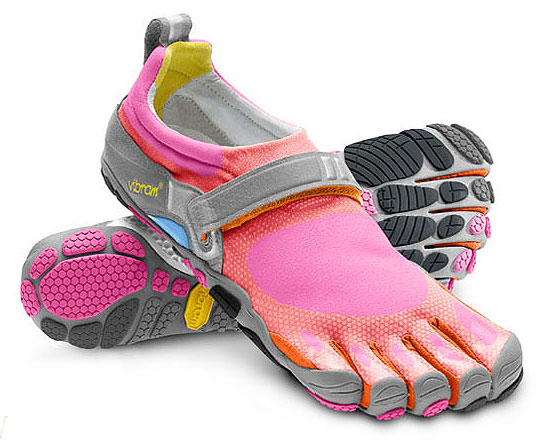 Top Class Action Lawsuits
Top Class Action Lawsuits
What’s in your cereal? Kashi Co, and parent company Kellogg are facing a class action lawsuit over allegations their cereal is mislabelled, effectively hiding the amount of sugar in the products.
And it’s not just cereal, apparently. According to the Kashi class action lawsuit, dozens of Kashi products are allegedly mislabeled, including cereal, chips, crackers and bars, pasta and frozen entrees.
The lawsuit, entitled Nadine Saubers v. Kashi Co., Case No. 13-cv-00899, U.S. District Court for the Southern District of California, states “Nearly all of Kashi’s products’ labels list ‘evaporated cane juice’ as an ingredient despite the fact that the FDA has specifically warned companies not to use the term because it is ‘false and misleading,’ is not ‘the common or usual name of any type of sweetener,’ and the ingredient is not, in fact, juice.”
Lead plaintiff Nadine Saubers, alleges Kellogg and Kashi are in violation of consumer protection laws which regulate food labeling, specifically by their use of the term “evaporated cane juice” instead of sugar, and by failing to disclose that the ingredient is still considered to be processed sugar. Yes, you have heard this one before …
The Kashi class action lawsuit seeks to represent a proposed class of all US residents who purchased Kashi mislabeled products since October 1, 2009, including a subclass of California purchasers.
Long Term Care Falls Short. Heads up to anyone with elderly parents who have paid into Chicago-based insurance company Bankers Life and Casualty long-term health benefits plans. The insurer is facing a bad faith insurance class action lawsuit alleging the company is denying benefits to those who paid for long term health care insurance so they would have security in their old age.
The Bankers Life class action, alleging elder abuse, was filed on behalf of four individuals (two harmed families) who have made claims as representatives of the class. Hundreds, possibly thousands of elderly customers are estimated to be affected by this action. The Oregon action is similar to other lawsuits against Bankers Life in other states.
Grants Pass resident Dennis Fallow, a plaintiff if the lawsuit, claims his mother has paid their premiums for years, counting on having support if she became ill. “That time came and all she got from Bankers Life was a cold shoulder, rejection and red tape. It was a total rip off,” he said in a statement to the press.
Fallow’s 79-year-old mother, Katherine Fallow, needed an in-home caregiver when she came home in 2009 following multiple hospitalizations. The family hired a caregiver certified as a home health aide by the State of Washington and an Oregon certified home health aide to care for Mrs. Fallow. Dennis Fallow began submitting the bills for that care to Bankers Life, anticipating payment under terms of his mother’s policy. What followed were several months of wrangling over aides’ qualifications, long delays in communications and denials of payments. Bankers Life eventually made payments in the amount of $11,388, far short of the $51,667 the family paid for Mrs. Fallow’s care. Mrs. Fallow died on July 6, 2011.
In 2011, Grants Pass attorney Christopher Cauble filed a lawsuit against Bankers Life on behalf of the Fallows. He soon learned the Grants Pass family wasn’t alone. “Bankers Life has likely refused long term health care benefits to many, many Oregonians,” Cauble told reporters. “I began hearing about other families with experiences similar to that of the Fallows. What we have in Bankers Life is a company with a history of raising premiums, delaying payments and denying legitimate claims.” Cauble’s findings prompted him to join with Portland attorney Mike Williams and his firm to file the federal class action against Bankers Life on behalf of all Oregon consumers.
FYI—in 2011, Bankers Life ranked worst (19th out of 19 companies) in the Oregon Department of Consumer and Business Services’ (DCBS) consumer complaint index. In fact, DCBS figures show Bankers Life ranked worst for consumer complaints every year from 2005 to 2011. Now there’s something to aspire to.
Top Settlements
News in the never-ending saga of mortgage-backed securities—this one was all over the wires this week—Bank of America reached a tentative settlement in the pending securities fraud class action lawsuit brought by investors who purchased mortgage investments from Countrywide Financial. BofA acquired Countrywide in 2008.
The proposed settlement would see BofA pay $500 million to settle the lawsuit, which would be paid out to plaintiffs that include Dubai’s Mashreq Bank and public and union pension funds in California, Maine, Nevada, Vermont and Washington states. The plaintiffs claimed they were misled about the risks of securities they bought from California-based Countrywide between 2005 and 2007.
The settlement surpasses the $315 million accord reached with Merrill Lynch in May 2012, making it the largest to resolve federal class-action litigation over mortgage-backed securities since the financial crisis began. The accord requires court approval.
Ok—that’s a wrap. See you at that bar…

